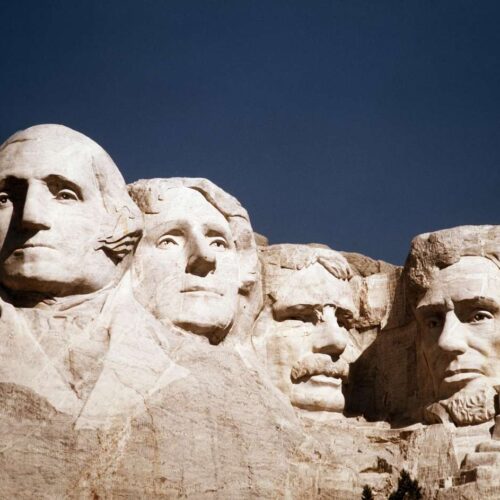Introduction
A sweeping anti-corruption measure that was inspired by a Center for Public Integrity report will appear on the ballot this year in South Dakota. The proposal, initiated by a bi-partisan group of former politicians and a national advocacy group, was certified this week by the Secretary of State there.
The measure would address a wide range of issues that contributed to the state earning an F from the State Integrity Investigation, a comprehensive evaluation and assessment of state government accountability and transparency published in November by the Center and Global Integrity.
The ethics reform campaign was begun last summer by Rick Weiland, a former Democratic candidate for U.S. Senate, and Don Frankenfeld, a Republican and former state senator, with the help of Represent.Us, a national advocacy group focused on fighting corruption in state and local government. A press release says the effort “was crafted in direct response” to the failing grade the state earned in the first State Integrity Investigation, in 2012. The group submitted some 25,000 signatures to the Secretary of State in November, nearly twice the number required to get on the ballot.
In an interview, Frankenfeld said the partnership with Represent.Us, which he said has provided much of the funding so far, could serve as a national model. “This is a homegrown effort, with grassroots origin, and it’s bipartisan,” he said. “The hope would be that we can pass a comprehensive reform measure here in South Dakota that would serve as a standard.”
Represent.Us, which bills itself as “fiercely nonpartisan” and has a board that draws from both sides of the political spectrum, has been organizing similar efforts on the local government level through chapters in California, New Jersey, Illinois and other states. In November, the Roanoke City Council, in Virginia, passed a resolution from the group supporting ethics reform in that state.
South Dakota ranked 47th in the 2015 State Integrity Investigation, earning failing grades in nine of 13 categories, as well as the overall grade of F. Lobbyists there only have to report scant detail about their activities, and citizens cannot access those reports online. There’s no ban on officials using campaign funds for personal purposes, and the state does not have an ethics commission to oversee public officials and lobbyists.
The South Dakota Government Accountability and Anti-Corruption Act, as the measure is called, would change much of that by creating an independent ethics commission, limiting gifts from lobbyists, placing lobbyist reports online and barring personal use of campaign funds, among other changes.
It’s not the first attempt at reform. Last year, in the shadow of an ongoing scandal involving high-ranking state officials, including former governor and current U.S. Senator Mike Rounds, House Democrats introduced a bill that would have created an independent ethics commission. The effort gained little support, however, and the bill was voted down in the House by a hefty margin.
While a ballot measure wouldn’t require any support from the public officials who would be overseen by the ethics commission, that doesn’t mean its chances are much better, said Jon Schaff, a professor of political science at Northern State University, in Aberdeen.
“The measure in total may be more complicated than people want to put up with,” he said, adding that voters generally lean against approving ballot measures. “People tend to vote no, and they tend to vote no particularly on things that are complicated.”
However, Schaff said the issues it covers could appeal to voters, something Frankenfeld and his group are counting on. Supporters are currently assembling a committee of prominent Democrats and Republicans to represent the campaign, but Frankenfeld said they’re not announcing the names yet. Once the committee is formed, he anticipates they’ll begin approaching business and civic groups, and eventually run ads in local media to build support. They’ll also try to raise money from “individual South Dakota donors,” he said, while continuing to rely on Represent.Us for the bulk of funding.
“I could pretend that we have a complete campaign plan in place, but we don’t.” Frankenfeld said. “First thing’s first, and we wanted to make sure we got on the ballot.”


Join the conversation
Show Comments